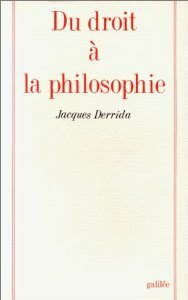Workshop on Transcendental Materialism
April 24-24, 2015
Loyola University Maryland
Baltimore
CALL FOR PAPERS
‘Transcendental Materialism: Anthropology, Nature, and the Political’
Keynote Speaker: Adrian Johnston, University of New Mexico
Since the publication of 2008’s Žižek’s Ontology: A Transcendental Materialist Theory of Subjectivity, the work of Adrian Johnston has aimed at the development of a contemporary materialist ontology which accounts for the emergence of a more-than-material form of subjectivity from a wholly material grounds. Utilizing the intellectual resources of German idealist philosophy, Freudian-Lacanian psychoanalysis, Marxist political theory, and the natural sciences, Johnston’s transcendental materialism aims at the development of an atheist, naturalist, and materialist ontology and theory of subjectivity that rivals the work of figures such as Alain Badiou and Slavoj Žižek.
This event, the first associated with the Working Group on Contemporary Materialism, will be the first focused on Johnston’s work in particular, and transcendental materialism more generally. To this end, we invite paper and panel proposals that both constructively and critically engage with Johnston’s recent published work, transcendental materialist accounts of subjectivity, the notion of a weak nature, critical engagements with transcendental materialism (especially those coming from the natural sciences, philosophy of mind, religion, and political theory), discussions of Johnston’s work in relation to other contemporary figures, the relationship between naturalism and materialism, and the place of atheism in transcendental materialism.
Other topics include, but are not limited to:
-Psychoanalysis and materialism
-The natural sciences and contemporary European philosophy
-Materialist accounts of gender and race
-Materialist accounts of life
-The role of materialist analysis in contemporary political theory
-Materialism and religion
-Psychoanalysis and the cognitive sciences (in particular, accounts of emergence)
-Critiques of new materialism and vitalism
-Materialist readings of modern philosophy and German idealism
-Material accounts of notions such as the will, affect, desire, anxiety, etc.
-Materiality in contemporary artistic and literary practice
-Marx and Marxism
-The work of Alain Badiou, Slavoj Žižek, and Catherine Malabou
-Relational ontologies and theories of transindividuality
We welcome advanced graduate students and all rank of faculty to submit any of the following to be considered for this workshop: papers of approximately 2,500 words, paper abstracts of up to 300 words, and panel proposals of up to three papers. We especially encourage submissions for under-represented groups in the humanities.
Please send submissions (including author’s name and affiliation) to moburns@loyola.edu by March 1st, 2015.
This event is sponsored by The Center for the Humanities and Department of Philosophy at Loyola University Maryland.
For more information on the Working Group on Contemporary Materialism visit: contemporarymaterialism.wordpress.com and facebook.com/contemporarymaterialism



